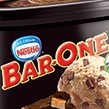ANT KATZ
The latest warning from the Beth Din is about any and all products manufactured by popular suppliers “Snoek Wholesalers”, and marketed under the Atlantic label. These, say the Beth Din, “are no longer under Beth Din supervision and are therefore no longer certified kosher”.
There is a difference between an alert in which the Beth Din says that a product is “not kosher”, and one that says a product or factory is “no longer under Beth Din supervision” and/or “no longer certified kosher”.
In the case where the Beth Din says a product is “not kosher, It is not kosher for a myriad reasons, usually because of the ingredients it contains or the production line it is manufactured on.
Little-known kosher distinction
But when the Beth Din uses the terms “no longer under Beth Din supervision” and/or “no longer certified kosher”, it usually means that it is kosher (at the time of the alert being issued) but that, for whatever reason, the manufacturer no longer pays the Beth Din for supervision or the use of its diamond hechsher. In other words, if you have some at home or see some on the supermarket shelves over the next week, it is safe to assume it is, in fact, kosher.
But, buyer beware: As of the time that Beth Din supervision ends, things could change – fast!
Other things to look out for
Terms like “The manufacturer is taking corrective action…” which is not specified. In these cases, kosher consumers generally have no idea what this means. It should mean something like:
- The product is being taken off shelves and will be repackaged correctly;
- A sticker will be placed over the hechsher (if it doesn’t belong there);
- A printed sticker indicating the correct stats (like, say, milchik) will be placed over the wrong one; or
- The product will be destroyed.
Unfortunately, all too often, and especially in the case of major Beth Din contributors such as Nestle, for example, the “corrective action” may well be that the next time a company prints packaging, they will try to remember that the packaging must be marked correctly.
With many large companies taking advantage of the economies of scale, the “next” printing of packaging may be years later. At one stage a Nestle Cappuccino product, wrongly labelled, remained so for at least two years.
Kosher consumers are becoming frustrated
Jewish Report Online user Meloney was quick to post: “So many products mislabelled. How can we tell when the hechsher is reliable or not?”
Another, Yuval, posted: Biggest money making scam.
 Bar One Ice Cream Sandwiches are not kosher and that the product carries the hechsher by mistake.
Bar One Ice Cream Sandwiches are not kosher and that the product carries the hechsher by mistake.- The second kashrut alert related to two products manufactured for Woolworths, which carry the hechsher, but are also not kosher. They are: Ciliegia Mozzarella with Sun-dried Tomato & Basil 215g; and Ciliegia Mozzarella with Olives & Thyme 215g.
Last week Friday, Jewish Report Online published the alert on Funky Korn which had been incorrectly labelled as parev while the product is in fact milchik. While the Beth Din said “the manufacturer is taking corrective action” they did not specify what that action would be.
This leaves kosher consumers vulnerable. A kosher consumer who didn’t receive the alert, or, say, is a foreign visitor (or someone who simply forgets a months-old alert when they are shopping – could easily end up eating a milchik product thinking it is parev, or the other way around.
Denis Solomons
Nov 6, 2015 at 9:48 am
‘The answer is to have three fridges ; fleishik , milchik and treif !’
Rachmiel
Nov 8, 2015 at 7:00 pm
‘The state of kashrus in this town has become so bad. Unless you make it yourself, you should not trust the hechsher. When money and politics, and not halocha are the determining factors, it’s a sad indictment on the system. ‘
Mendy
Nov 9, 2015 at 4:29 am
‘Case in point. Funky Korn has been marked parev for at least two years.’
Dov
Nov 9, 2015 at 7:03 am
‘Sensationalism at it’s best. To say that the kosher consumer is now vulnerable is overreacting. We have the most incredible Kashrut Department and for a community the size that we are, to have such choice and variety is really something. So sometimes things are mislabeled or lose their kashrut license, this happens with all products – manufacturers are constantly putting out notices about errors or even withdrawing stock due to fault in production or some issue around allergies (and these have serious medical consequences). Does that mean that we are now vulnerable when trying to buy those products?
Let’s try keep a little perspective here. The minute there is an problem or a change, the UOS issues a Kashrut Notice to inform the public. I think a little credit is due here for their hard work.’